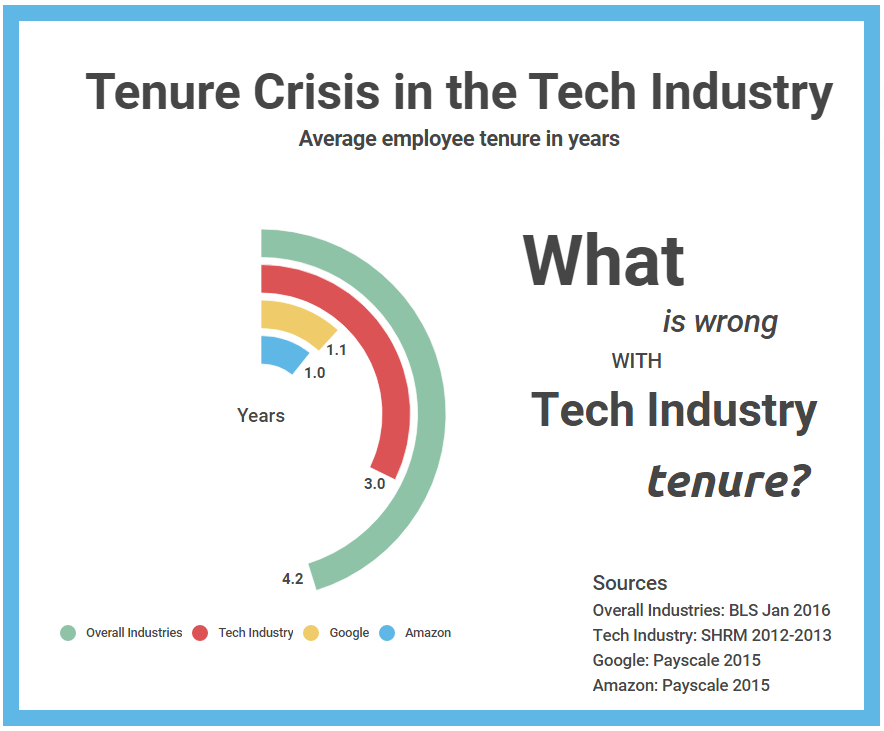With data compiled from a variety of sources, this graphic points to a big problem with tenure in tech. Is it the nature of the tech business? Is it a new generation mindset? Is it even a problem? What is the solution?
The average overall tenure is 4.2 years, while tech slid to 3 years. Even more eye opening is that industry leaders like Amazon and Google have tenures of around 1 year!
I think part of the problem is a shift in the way we view work. In the medieval days, we associated our names by the work we do, such as Smith, Baker, and so on. Our identity was based on the work we did.
Then something happened. In the mid 1800s with the industrial revolution, we began to work for “the man”. No longer were we bakers and smiths, but we “worked at the factory” or we were “Ford guys”. Pensions kept us working at the same place for years. My father worked 50 years at the factory before he retired. That was common back then.
In 1946, starting in large part to William Russell Kelly, our identity changed again. His Kelly Services started a new brand of temporary services where a Kelly employee would provide a job function for different clients.
With the introduction of temporary staffing, workers started to identify themselves with the work they do again. Temporary staffing exploded in the late 1900s and early 2000s to the point where, now, temporary staffing (including traditional temporary, freelancing and “gig economy”) is becoming a permanent fixture in the way we hire.
Then, enter the Millennial mindset. I read an article that the average Millennial worker tenure is 2 years. If that is true (and the above graphic seems to somewhat validate my assumption- Google has one of the youngest work forces of the Fortune 500 companies and one of the lowest tenures), then tech industry tenure is likely to continue to decrease as more Millennials and the upcoming Gen Z enter the workforce.
Both of these workforce demographics are far more likely to go from company to company than Boomers are, who are exiting the workforce (except me, of course).
Either way, I believe that you will see more of these demographics identify themselves by the work they do (I’m a UI/UX girl, or SQL developer) than they are by the company they work for.
So, back to my original question. Is it a problem? Probably not for people in the tech staffing industry who have talented candidates who prefer to work in different environments. But it could be a problem with companies who continue to use the traditional hiring model who expect employees to stay 8 to 10 years.






Recent Comments